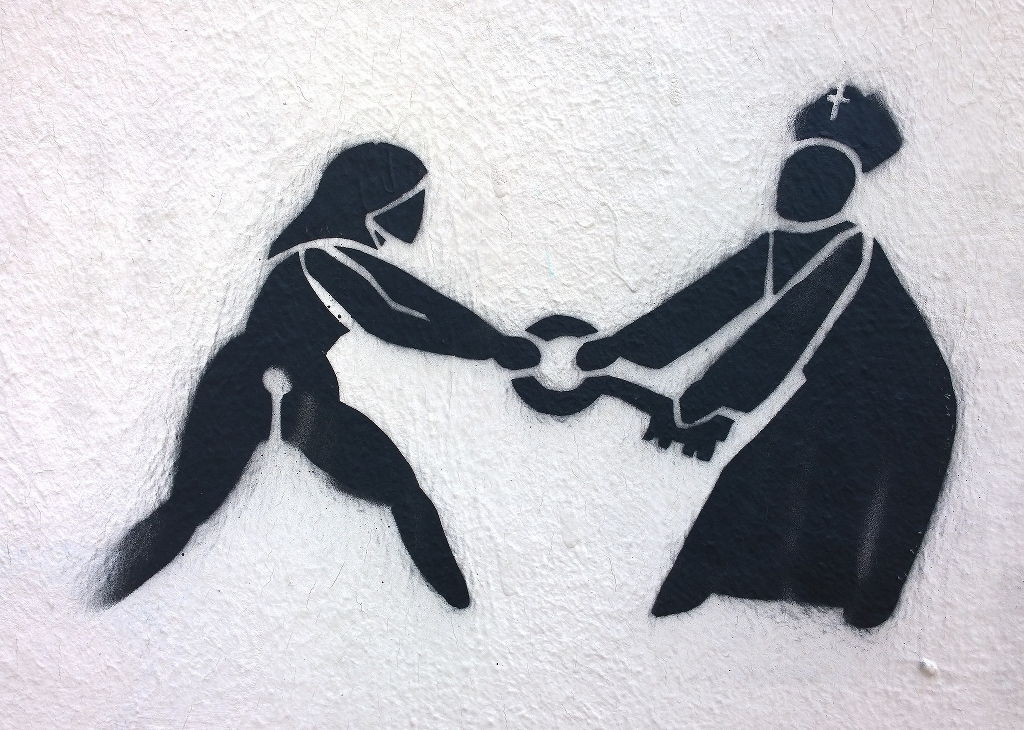Polish lawmakers are said to have changed their minds about putting forward a proposal to severely limit its citizens’ right to an abortion, following massive demonstrations and strikes in protest. The proposed law, which would ban abortion in all cases except risk to the life of the mother, and would raise the prison sentence from 2 to 5 years, was an extension of already strict laws that currently prohibit terminations except in cases of rape, incest, risk to the life of the parent and severe genetic disease in the foetus. Under the proposed law, doctors who participated in terminations would also face prosecution and imprisonment.
The Law and Justice Party (PiS) was urged to step back by a parliamentary committee once the strength of feeling from the demonstrations became clear.
The ‘Black Monday’ protests
As has always been the case, wherever in the world terminations are illegal, the near-total ban on abortions in Poland does not mean that nobody is having one. Illegal underground abortions can be obtained, with all the risk and endangerment associated with that, or people can travel to other countries – often Germany – to have the procedure carried out in medical centres. The combination of illegal and international abortions amongst Polish people is thought to total 150,000 per year, demonstrating that the ban does not save the lives of embryos, it merely endangers those carrying them.
So, on Monday last week, tens of thousands of Polish people, mainly women, went on strike, skipping work and school to demonstrate on the streets instead. Many of the protesters dressed in black, carrying placards that stated ‘My uterus, my opinion’, and ‘We need doctors, not religion’; Poland is a country with a powerful Roman Catholic ethos in terms of traditions, culture and law.
The Guardian reports that these protests, dubbed Black Monday due to the colour of the attire worn by many of the demonstrators, have even caused a swing in public opinion, with more people than ever opposing the new law and even advocating for the softening of the existing legislation. Principles were also changed amongst the law makers themselves: Krystyna Pawlowicz, who initially said that those who opposed the ban were “fans of killing babies”, ultimately voted to reject the newly proposed bill.
Inspired by a strike in Iceland in 1975, Black Monday was organised in just a week, with social media playing a key role in getting people together. During the Icelandic strike, 90% of women refused to attend work or carry out work in the home.
Abortion laws in Europe
Poland is not the only European country with restrictive abortion laws. The Republic of Ireland, Northern Ireland, Malta, Andorra, San Marino and Liechtenstein all either ban or seriously restrict access to abortions for people who need them. In Ireland, recent protests have caught the media’s attention, and it is possible that the apparent success of the demonstrations and strikes in Poland may encourage the Irish protesters – who are appealing to the government to ‘repeal the 8th’ – to continue with their battle.
Because, despite some understandable scepticism from Polish feminists who are wary of celebrating until the law is officially done and dusted, the apparent success of the Black Monday protests can be added to the list of times when protest, demonstrations and civil disobedience has been successful. This has included the poll tax riots in the UK and the march on Washington in the USA.
The poll tax riots
In 1990, the British Conservative government, under Margaret Thatcher as Prime Minister, tried to introduce laws imposing a ‘community charge’ that taxed adults regardless of their income or circumstances. This charge quickly became known as the ‘poll tax’ and was opposed by many different groups who objected to its unfairness and relative disadvantaging of poorer people against those who could afford to pay more.
Following a demonstration in London on 31st March 1990, fights between police and protesters led to wider unrest and riots until the early hours of the following morning.
Opposition to the poll tax, demonstrated in part by the riots that took place in the March, is thought to have been a contributing factor to the downfall of Thatcher, who resigned in November that year. The new Prime Minister, John Major, used his first ever speech in Parliament as Prime Minister to announce that the poll tax was to be replaced by a somewhat more means-tested alternative, the Council Tax.
A similarly powerful example of the power of the people is the March on Washington. In the US, African Americans marched and heard Martin Luther King deliver his most well-known speech in 1963. It is thought that this display of solidarity and strength encouraged the passing of the Civil Rights Act in 1964 and the Voting Rights Act in 1965.
On a smaller scale, Slutwalks and Reclaim the Night marches have encouraged institutions, especially universities, to examine their policies on rape, sexual assault and consent, with the power grabbed by the demonstrators contributing to a safer and more respectful environment.
Even when not changing national law or governments, demonstrations and protests can make real changes to people’s lives. Solidarity protests across the globe backed up the women of Poland who were taking their stand, and we must all continue to watch to ensure that the law that the government has promised to shut down is indeed completely scrapped. Next? Abortion access for all, everywhere.
Photo: Denis Bocquet/Creative Commons

